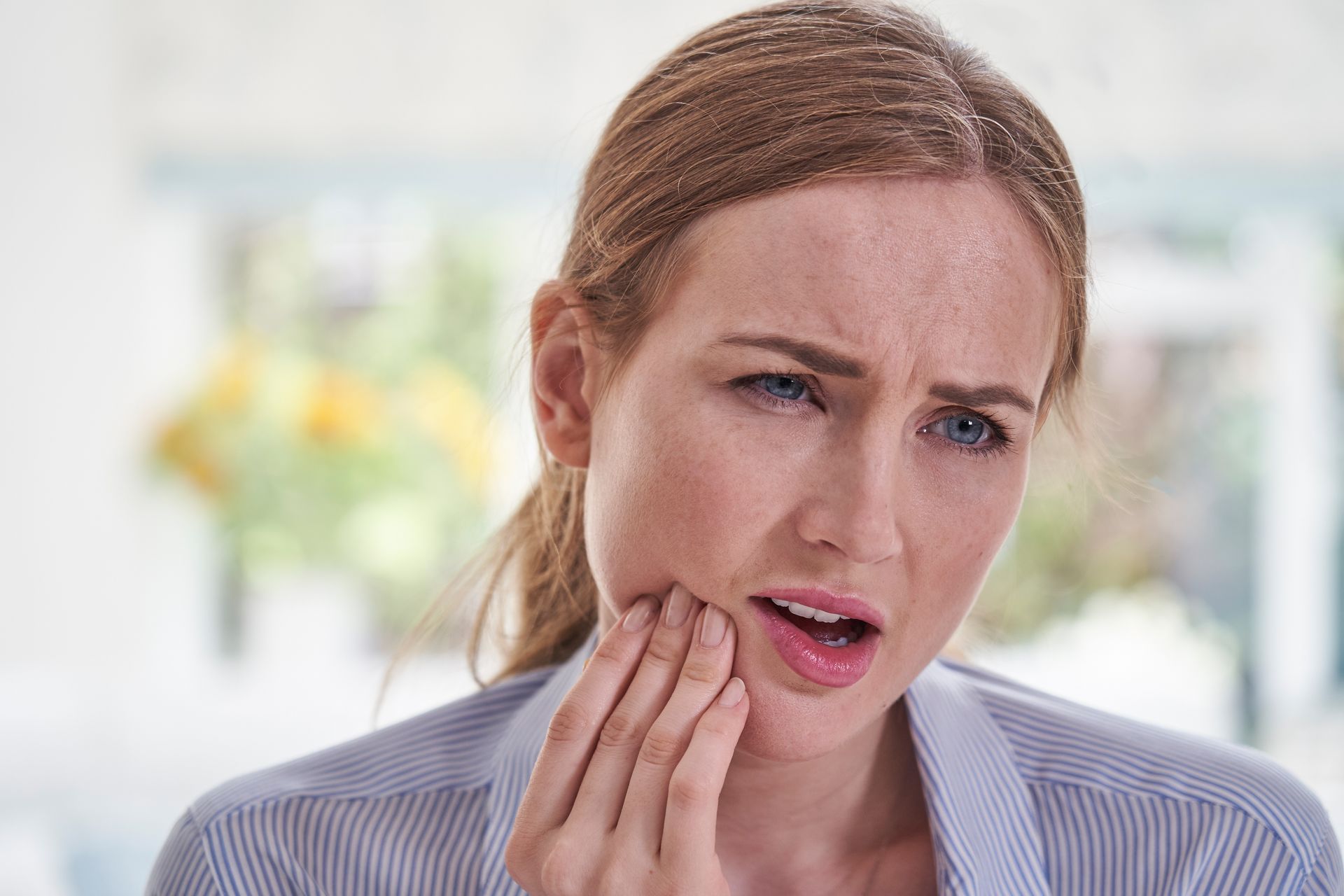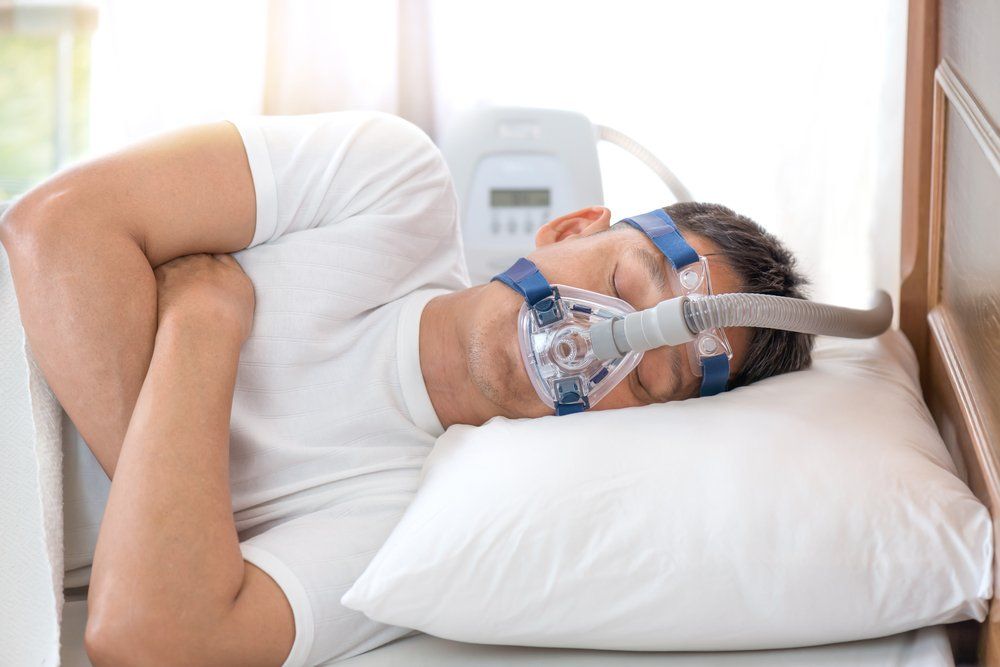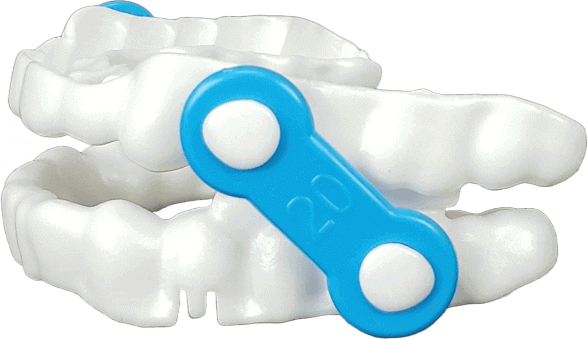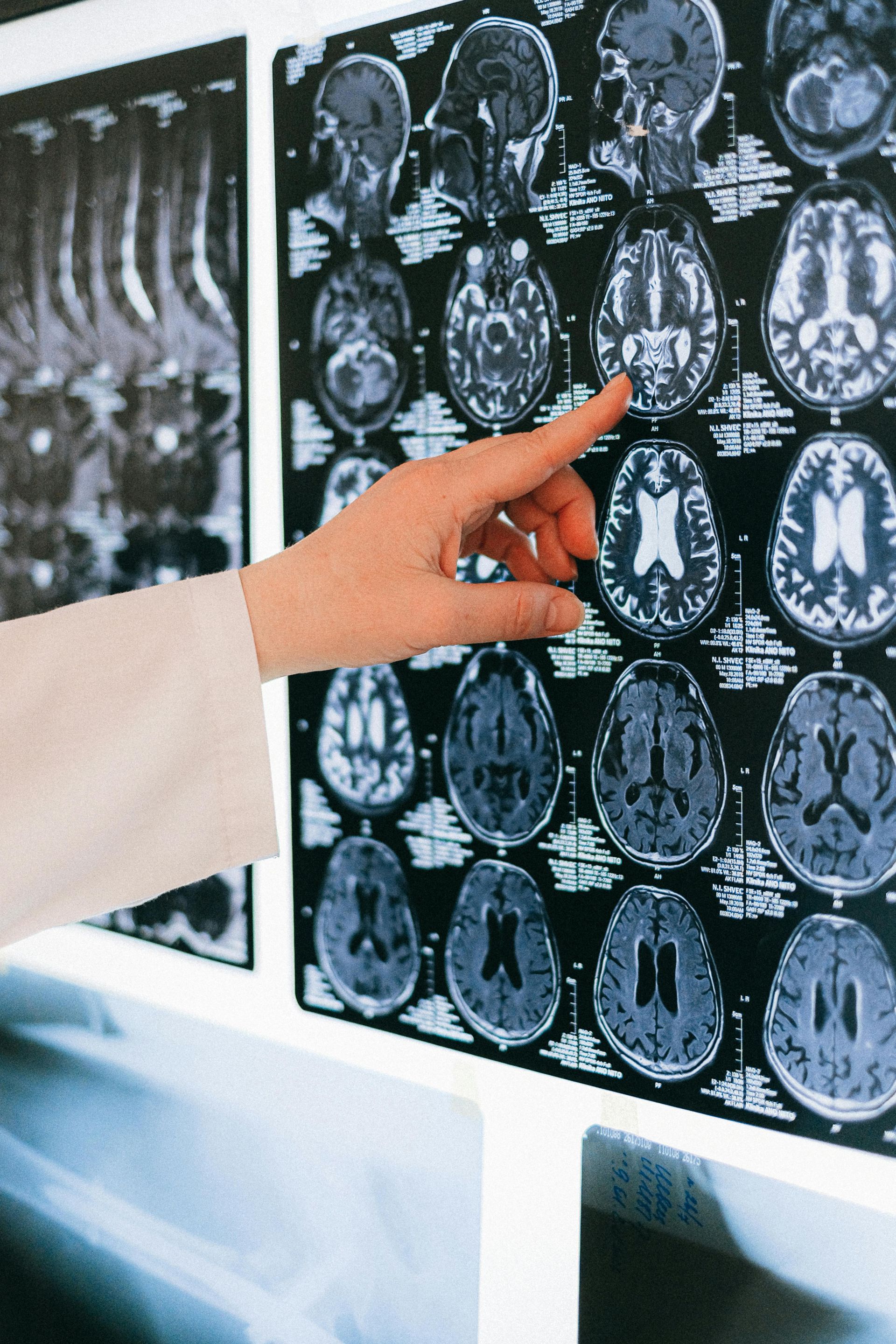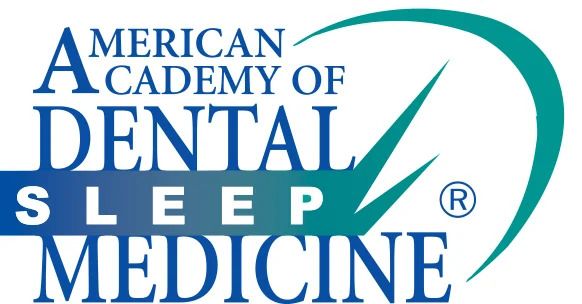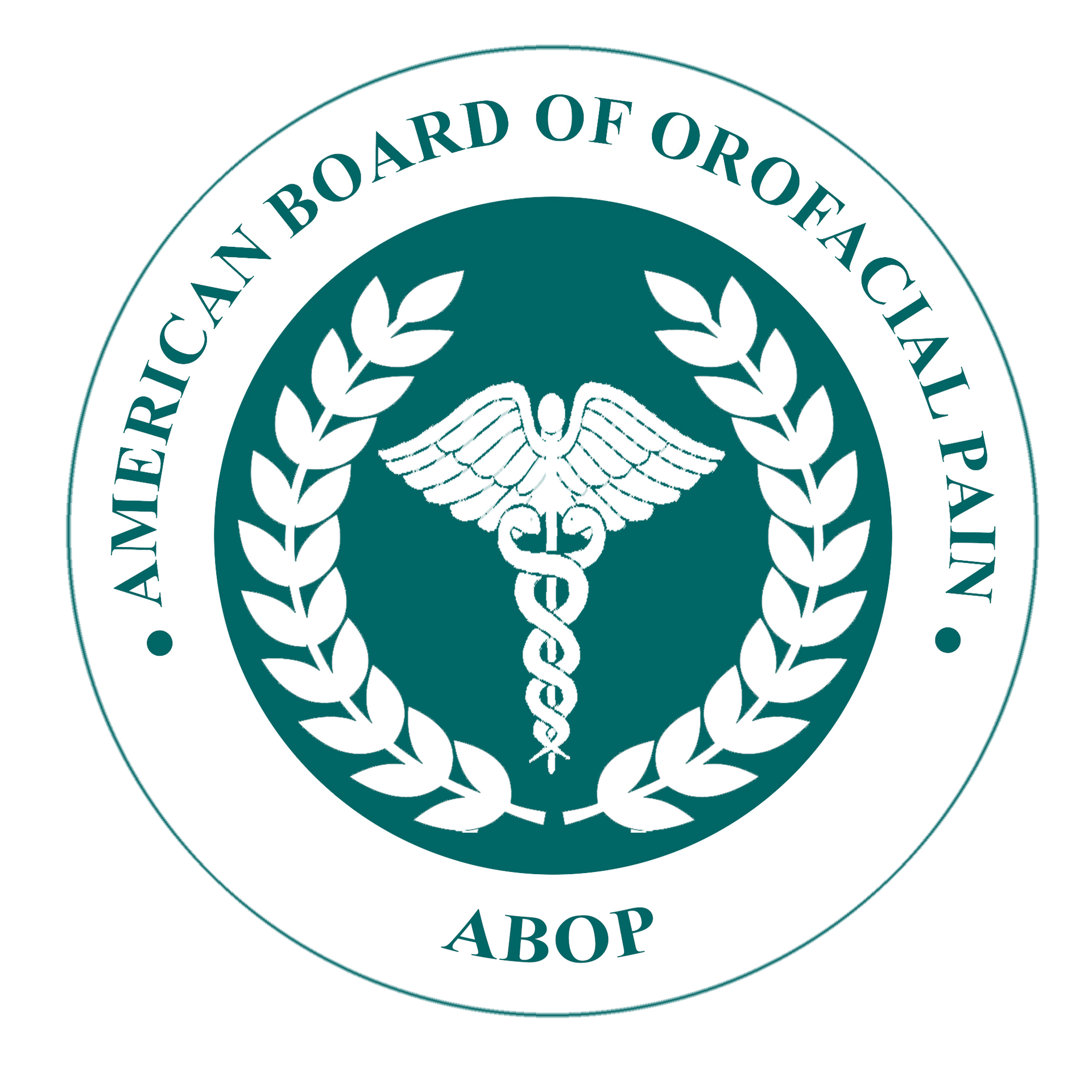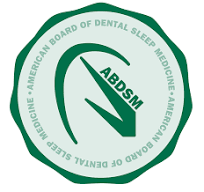How are TMJ, Lockjaw, and Jaw Lock Related?
Updated on May 19, 2025
Though TMJ, lockjaw, and jaw lock are terms that are often used interchangeably, they are not the same thing, and they describe very different conditions. “TMJ” refers to the temporomandibular joint (TMJ) or disorders associated with this joint (TMD), while “lockjaw” and “jaw lock” refer to conditions involving the TMJ. Both jaw lock and lockjaw involve a tightening or stiffening of the TMJ. Jaw lock can be a symptom of a TMD, and TMD can cause jaw lock, but lockjaw can either be related to a TMD or the sign of something more serious. Lockjaw caused by a bacterial infection is a medical emergency typically synonymous with tetanus, because the infection can cause muscle spasms that lock the TMJ. Lockjaw caused by a bacterial infection is not caused by TMD, nor can it cause TMD.
The jaw is one of the most complex and dynamic structures in the body, relying on a delicate balance of muscles, ligaments, bones, and cartilage to function properly. At the center of this system is the temporomandibular joint (TMJ), a pair of small but powerful joints that connect the jawbone to the skull and allow for smooth, multi-directional movement. Because the TMJ works in coordination with surrounding facial muscles and nerves, even minor dysfunctions can result in significant pain, stiffness, or limited mobility, and issues with the TMJ may also be linked to conditions like bruxism, malocclusion, or sleep apnea, which can further complicate symptoms.
If you are experiencing pain in your jaw, it is essential to seek care from a provider who specializes in the physiology of the jaw and facial structure. TMJ specialists
Dr. Katherine S. Phillips and
Dr. YC Joseph FischerHahm of
Restore TMJ & Sleep Therapy in The Woodlands have dedicated their practice to helping patients find real and lasting relief from jaw pain and dysfunction, including disorders of the TMJ and jaw lock. With more than 15 years of experience, deep expertise in the structure and function of the face and jaw, and access to the latest in advanced diagnostics and innovative treatment modalities, Dr. Phillips and Dr. FischerHahm can accurately diagnose the root cause of your jaw pain and develop a comprehensive, customized treatment plan that addresses both the symptoms and any underlying dysfunction.
Breaking Down the Terminology: TMJ, Jaw Lock, and Lockjaw
Because they all involve the jaw and the temporomandibular joint in some way–and they can have similar symptoms, such as difficulty in opening or closing the mouth–it can be easy to confuse TMJ, jaw lock, and lockjaw. Moreover, “lockjaw” or “locked jaw” can refer to either trismus–TMJ-related lockjaw–or the muscle spasms caused by the bacterial infection tetanus.
Here is a brief overview of what each of these terms are and how they are related to your TMJ.
TMJ
The TMJ, or temporomandibular joint, consists of two joints–one on each side of the head, just under the ears–that connect the jawbone (mandible) to the skull (temporal bone). These are complex joints that work in unison with the muscles and ligaments surrounding the jaw, acting as sliding hinges to allow your jaw to move together side-to-side, back-to-front, and up and down so you can eat, chew, yawn, and talk properly.
Like other joints in the body, the TMJ and associated muscles and tissues can become inflamed and sore as a result of stress, trauma, overuse, arthritis, or other strain, causing the TMJ to essentially malfunction. Abnormalities and disorders of the TMJ are referred to as
TMJ, TMJ disorders, or simply TMDs. TMDs can vary widely in their severity, symptoms, and causes.
Problems with the TMJ can cause the jaw to sound like it’s clicking or popping when it moves as well as pain or stiffness in the muscles of the face and neck. Because of the joint’s proximity to the ear canal, TMD can also produce ear pain. TMD and TMJ disorders are frequently associated with conditions like bruxism (teeth grinding and clenching) and sleep apnea.
Jaw Lock
Jaw lock is a “locking” of the jaw in either an open or closed position and it is one possible symptom of a TMD. Even if the jaw is not completely stuck or “locked” into a position, there is still a limited range of motion.
What Causes Jaw Lock
Jaw lock can develop as the result of a TMJ disorder, such as a damaged TMJ disc cartilage, or temporomandibular joint displacement. Also known as internal disc derangement, TMJ displacement is an abnormal function of the mandibular condyle (a rounded structure at the back of the mandible), the mandibular fossa (a depression in the temporal bone that articulates with the mandibular condyle), and the jaw joint’s articular disc.
Jaw lock can also develop as a result of malocclusion (or a misaligned bite) or
bruxism (clenching and grinding).
What Jaw Lock Feels Like
Jaw lock feels like the jaw is catching, locking, or hooking, a sensation that occurs when the TMJ disc slips out of place and the jaw joint becomes misaligned. Jaw lock can be accompanied by headaches, migraines, and ear pain and may produce pain and soreness in the TMJ.
Symptoms of Jaw Lock
Although jaw lock can sound and feel scary, it is not life-threatening. However, if it isn’t treated, it can become more frequent, painful, and severe over time as symptoms worsen.
Jaw lock symptoms include:
- Cramping
- Soreness
- Discomfort, stress, tension, and/or pain in the jaw and facial muscles
- Difficulty opening and closing the mouth
Jaw lock is temporary and can occur intermittently, with the jaw momentarily stuck in a closed or open position, or the locking can be prolonged. It is also often unexpected; patients with jaw lock usually can’t predict when their jaw will stick.
How Jaw Lock and TMJ Are Related
Jaw lock is a symptom of a TMJ disorder, although TMJ disorders or TMD are not always accompanied by a locked jaw sensation. Jaw lock typically involves muscle and joint inflammation, usually due to a dislocated articular disc in the TMJ. This can result in stiffness and tightness in the TMJ, and can exacerbate any swelling or inflammation that may already be present.
Jaw lock can be treated as part of comprehensive TMJ or TMD treatment that might include physical therapy, medication like muscle relaxants or anti-inflammatories, or oral devices like night guards or dental splints. In some cases, oral surgery may be necessary to correct problems with your TMJ and address jaw lock.
Lockjaw is typically used synonymously with tetanus because one of the most common symptoms of tetanus is a tightening, stiffening, or “locking” of the jaw. Tetanus produces a potent neurotoxin that affects the nervous system and can cause painful muscle contractions, spasms, and stiffness, including in the muscles of the face and jaw. This can cause the temporomandibular joint (TMJ) to tighten and feel “locked.” Tetanus itself can be deadly if not treated promptly, but vaccines have made the infection rare in the U.S.
What Causes Lockjaw (Tetanus)
Lockjaw (tetanus) can develop if an open cut or wound becomes infected with tetanus bacteria, which is common in the environment in soil, dust, and manure. Tetanus can enter the body through breaks in the skin such as from burns, puncture wounds, or compound fractures, as well as from surgical procedures, IV drug use, dental infections, and chronic sores or infection.
What Lockjaw (Tetanus) Feels Like
Lockjaw (tetanus) feels like a gradual stiffening of the muscles all over the body caused by painful muscle contractions, starting in the neck and jaw. It is typically felt equally on both sides of the jaw and can peak within a few hours of its sudden onset. In addition to a locked jaw, individuals with a tetanus infection will also experience spasms in the chest, heart, face, stomach, back, extremities, and other voluntary muscles of the body. Breathing, swallowing, and speaking may become difficult, and fever, changes in blood pressure and heart rate, and irritability are all common.
Symptoms of Lockjaw (Tetanus)
Lockjaw (tetanus) may be one of the most widely recognized symptoms of tetanus, but the infection can produce a wide range of symptoms. Symptoms of lockjaw (tetanus) begin gradually–with spasms that last from minutes to weeks–and then worsen over two weeks, starting at the jaw and progressing through the body.
The symptoms of lockjaw (tetanus) can include:
- Difficulty swallowing or speaking
- Jaw pain
- Earache
- Headache
- Dry mouth
- Sore or inflamed mouth
- Drooling
- Stiffness in the neck muscles
- Seizures
- High blood pressure
- Fast heart rate
- Fever and sweating
How Lockjaw (Tetanus) and TMJ Are Related
Lockjaw (tetanus) is a stiffening of the TMJ as a result of tetanus. Lockjaw (tetanus) is not caused by TMJ disorders or TMD, nor does tetanus (or lockjaw) cause the majority of jaw problems.
Lockjaw (tetanus) must be diagnosed by a medical doctor and cannot be treated with traditional TMD treatment modalities. Treating lockjaw (tetanus) usually requires hospitalization, antibiotics, aggressive wound care, and immediate treatment with human tetanus immune globulin medication. Serious infection may require breathing support.
TMJ-related lockjaw (trismus) is NOT life-threatening, but it can produce debilitatingly painful spasms and difficulty in opening and closing the mouth. For the most part, temporary lockjaw (trismus) is more common than lockjaw caused by tetanus, primarily because the use of vaccines has reduced the frequency of the bacterial infection. While originally used only in relation to tetanus, lockjaw (trismus) is now used more generally to describe bilateral restriction in mouth opening.
What Causes Lockjaw (Trismus)
Lockjaw (trismus) is caused by muscle spasms and occurs when the jaw muscles become inflamed, irritated, and so tight that your mouth cannot open, not as the result of a bacterial infection but because something has affected your jaw. In addition to TMJ disorders, lockjaw (Trismus) can develop in response to a variety of other issues, such as arthritis, bruxism, stress, oral infections, and jaw injuries or trauma. It can also develop after head and neck cancer treatment or even wisdom teeth removal.
What Lockjaw (Trismus) Feels Like
The pain of lockjaw (trismus) is typically localized to the jaw, and produces a sensation that the jaw is locked or stiff. While it may be accompanied by headaches, earaches, and difficulty chewing or swallowing, lockjaw (trismus) does not produce the generalized muscle spasms, body stiffness, fever, or sweating of lockjaw (tetanus).
Symptoms of Lockjaw (Trismus)
The primary symptom of lockjaw (trismus) is the inability to open your mouth as wide as you normally can. Pain is localized to the jaw muscles and surrounding tissues, and it is not a life-threatening condition. Lockjaw (trismus) can resolve within a few days, but may require interventional care to prevent recurring episodes or long-term damage.
Other symptoms of lockjaw (trismus) can include:
- Difficulty chewing solid foods
- Difficulty opening and closing the mouth
- Limited range of motion in the jaw
- Clicking, grinding, or popping sounds in the jaw joint
- Pain in the jaw joint and surrounding muscles, even if you are not talking, eating, or trying to move it
- Pain when yawning
How Lockjaw (Trismus) and TMJ Are Related
Lockjaw (trismus) occurs in response to muscle spasms, inflammation, or dysfunction in the TMJ. However, while it can be a symptom of a TMJ disorder, it can also develop from other medical conditions affecting the jaw muscles or the TMJ.
Lockjaw (trismus) can be treated as part of comprehensive TMJ or TMD treatment that includes physical therapy, medication like muscle relaxants or anti-inflammatories, oral devices like night guards or dental splints, and therapies such as trigger point injections and laser therapy. In some cases, oral surgery may be necessary to correct problems with your TMJ and address lockjaw (trismus).
What to Do if You Experience a Locked Jaw
A locked jaw can be very scary, but it’s important not to panic; the adrenaline of fear can create more tension in the jaw, making it even more difficult to unlock. So do your best to relax as much as possible.
Then, try to identify if your locked jaw is the result of muscle tension, like with a TMD, or is the symptom of a tetanus infection
- If it is associated with a TMD, you will likely feel an achy pain or soreness in your chewing muscles and maybe some mild discomfort in your neck, head, or shoulders.
- If your locked jaw is developing from the onset of an infection, you will likely also be experiencing fever, muscle stiffness (as opposed to soreness), muscle spasms, difficulty breathing and swallowing, and changes in your heart rate and blood pressure. You or a loved one should contact a doctor or emergency room right away and seek immediate treatment
If your jaw is locked because of TMD, you can help relieve it with
- Manual jaw-opening exercises, where you use your hand to manually manipulate the jaw open and close until it loosens
- Jaw joint and smile stretches, to reduce pain and stress in the muscles of the face, jaw, and neck
- Massage, especially on your chewing muscles and along your jaw
- Relaxation and stress management techniques like deep breathing
- Warm compresses applied to the area
- Comprehensive splint therapy
You can also help prevent a locked jaw and reduce TMJ discomfort with over-the-counter medications like ibuprofen or acetaminophen, exercises to stretch and strengthen your jaw, and a night guard worn while you’re sleeping.
Treat Your TMJ Disorder, Jaw Lock, and Lockjaw (Trismus) with Restore TMJ & Sleep Therapy
When it comes to treating TMJ pain, jaw lock, or trismus (lockjaw), choosing the right provider makes all the difference. At Restore TMJ & Sleep Therapy, you’ll receive care from board-certified specialists who focus exclusively on the physiology of the jaw, joint, and surrounding muscles—ensuring that no detail is overlooked. Dr. Katherine Phillips and Dr. YC Joseph FischerHahm use advanced diagnostic tools to evaluate jaw alignment, joint function, muscle imbalances, and lifestyle factors that may be contributing to your symptoms, and practice a patient-centered approach that allows them to develop precise, custom, and comprehensive treatment plans that integrate proven modalities like splint therapy, Botox injections, physical therapy, or other non-invasive techniques tailored specifically to your needs.
Patients who suffer from jaw locking or muscle stiffness often find little relief with generalized treatment, but the TMJ specialists at Restore TMJ & Sleep Therapy offer more than symptom management. By identifying the root causes of your jaw pain and dysfunction, Dr. Phillips and Dr. FischerHahm can treat pain at its source and help restore proper jaw function and mobility. Whether your symptoms are caused by TMJ dysfunction, disc displacement, muscle tension, or even referred pain from posture or stress, they work collaboratively with other specialists like physical therapists and pain management experts to deliver lasting relief.
If you're struggling with jaw pain, limited movement, or discomfort that hasn’t improved with traditional care, now is the time to trust your health to the experts at Restore TMJ & Sleep Therapy.
Contact us today, take our
self-guided TMJ quiz
, or fill out a
convenient appointment request form, and let us help find a solution that gets you out of pain and back to life.
-2700x842-1920w.png)






